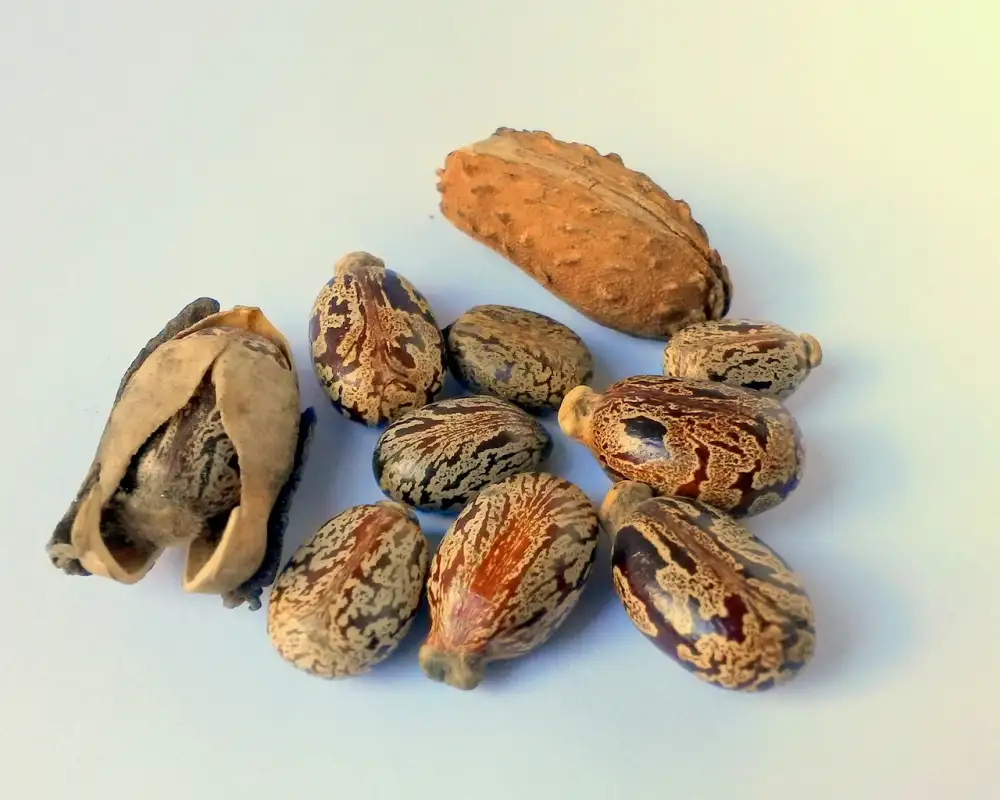Unlocking the Health Benefits of Seed Oils: Discover the Magic of Nature's Nutritional Powerhouses

Seed oils, also known as vegetable oils, are extracted from the seeds of various plants. These oils have been used for centuries in cooking and medicinal purposes due to their numerous health benefits. They are rich in essential nutrients, including vitamins, minerals, and antioxidants. Seed oils are versatile and can be used in a variety of dishes, adding flavor and nutritional value. In this article, we will explore the magic of seed oils and uncover their potential to enhance our overall health and well-being.
Nutritional Benefits of Seed Oils
Seed oils are not only delicious and versatile in the kitchen, but they also offer a wide range of nutritional benefits. These oils are rich in essential fatty acids, vitamins, and minerals that are vital for our overall health and well-being. They provide a concentrated source of energy and help to support various bodily functions. Additionally, seed oils contain antioxidants that can help protect our cells from damage caused by harmful free radicals. By incorporating seed oils into our diet, we can unlock the nutritional powerhouses that nature has provided us with.
Omega Fatty Acids in Seed Oils
Omega fatty acids are a key component of seed oils and play a crucial role in maintaining our overall health. These essential fatty acids cannot be produced by the body, so it is important to include them in our diet. Seed oils, such as flaxseed oil, chia seed oil, and hemp seed oil, are rich sources of omega-3 and omega-6 fatty acids.
Omega-3 fatty acids have been widely studied for their numerous health benefits. They have been found to reduce inflammation in the body, lower blood pressure, and improve heart health. Omega-3s also support brain function and may help reduce the risk of cognitive decline and depression.
On the other hand, omega-6 fatty acids are important for promoting healthy skin and hair. They help maintain the integrity of cell membranes and assist in the production of hormones that regulate various bodily functions. However, it is crucial to maintain a proper balance between omega-3 and omega-6 fatty acids in our diet.
By incorporating seed oils into our daily meals, we can ensure an adequate intake of these beneficial omega fatty acids. Whether drizzled over salads or used as a cooking oil, seed oils provide a convenient way to boost our omega-3 and omega-6 levels. So why not unlock the nutritional power of seed oils and reap the many benefits they offer for our overall well-being?
Antioxidant Properties of Seed Oils
Seed oils are not only rich in essential nutrients, but they also possess powerful antioxidant properties. Antioxidants are compounds that help protect our cells from damage caused by harmful free radicals. Free radicals are unstable molecules that can cause oxidative stress and contribute to various health issues such as inflammation, aging, and chronic diseases.
The antioxidant properties of seed oils come from a variety of compounds, including vitamin E, phenolic compounds, and carotenoids. Vitamin E is a fat-soluble vitamin that acts as a potent antioxidant, protecting our cells from oxidative damage. Phenolic compounds are plant-based antioxidants that have been shown to have anti-inflammatory and anticancer effects. Carotenoids are pigments found in plants that also act as antioxidants.
By incorporating seed oils into our diet, we can increase our intake of these beneficial antioxidants. Cold-pressed seed oils, such as flaxseed oil and chia seed oil, tend to retain more of their natural antioxidants compared to refined oils. These antioxidants work together to neutralize free radicals and reduce the risk of chronic diseases.
In addition to their antioxidant properties, seed oils also contain other bioactive compounds that contribute to their health benefits. For example, some seed oils like hempseed oil contain gamma-linolenic acid (GLA), which has anti-inflammatory effects.
It's important to note that while seed oils can provide antioxidant benefits, they should be consumed in moderation as part of a balanced diet. Excessive consumption of any oil can lead to weight gain due to its high calorie content. Therefore, it's recommended to use seed oils as a supplement rather than the main source of dietary fats.
Incorporating a variety of seed oils into your cooking and meal preparation can add depth of flavor while also providing you with the potential health benefits associated with their antioxidant properties. So why not unlock the magic of nature's nutritional powerhouses by exploring the world of seed oils?
Potential Health Benefits of Seed Oils
Seed oils offer a wide range of potential health benefits due to their rich nutritional profile. These oils are packed with essential fatty acids, vitamins, and minerals that can support overall well-being. Research suggests that consuming seed oils may help reduce inflammation, lower cholesterol levels, regulate blood sugar, and support a healthy immune system. Additionally, the antioxidants found in seed oils can protect against oxidative stress and promote cellular health. Incorporating these nutritious oils into your diet may contribute to improved cardiovascular health, brain function, skin health, and digestive wellness.
Seed Oils and Heart Health
Seed oils have long been recognized for their potential benefits in promoting heart health. These oils are rich in monounsaturated and polyunsaturated fats, which have been shown to help reduce levels of LDL cholesterol, also known as "bad" cholesterol. By replacing saturated fats with seed oils in our diet, we can lower our risk of developing heart disease and other cardiovascular conditions. Additionally, the omega-3 fatty acids found in certain seed oils, such as flaxseed oil and chia seed oil, have anti-inflammatory properties that can further protect the heart by reducing inflammation in the arteries. Incorporating these heart-healthy seed oils into our daily cooking and meal preparation can be a simple yet effective way to support cardiovascular wellness.
Seed Oils and Brain Health
Seed oils have been found to have numerous benefits for brain health. The omega fatty acids in seed oils, particularly omega-3 and omega-6, play a crucial role in maintaining the structure and function of brain cells. These fatty acids are essential for the development and maintenance of the brain, and they also support cognitive function and memory.
Research has shown that consuming seed oils rich in omega-3 fatty acids, such as flaxseed oil or chia seed oil, can help reduce the risk of age-related cognitive decline and improve overall brain health. Omega-3 fatty acids have been linked to improved focus, attention, and mood.
Additionally, seed oils contain antioxidants that protect the brain from oxidative stress and inflammation. Oxidative stress is known to contribute to neurodegenerative diseases such as Alzheimer's and Parkinson's. By incorporating seed oils into your diet, you can provide your brain with the necessary nutrients to combat these harmful effects.
To reap the benefits of seed oils for brain health, it is important to choose high-quality, cold-pressed oils that retain their nutritional value. Incorporate these oils into your daily cooking routine by using them as a dressing for salads or drizzling them over roasted vegetables. You can also add a tablespoon of seed oil to your morning smoothie or mix it into yogurt for an extra boost of brain-healthy nutrients.
In conclusion, seed oils are not only delicious but also offer significant benefits for brain health. By including these nutritional powerhouses in your diet, you can support cognitive function, protect against neurodegenerative diseases, and promote overall brain health. So go ahead and unlock the magic of nature's nutritional powerhouses by incorporating seed oils into your daily meals!
Seed Oils and Skin Health
Seed oils are not only beneficial for our internal health but also for our external well-being. When it comes to skin health, seed oils have proven to be a magical elixir. These oils are packed with essential fatty acids, vitamins, and antioxidants that nourish and protect the skin.
The high content of omega-3 and omega-6 fatty acids in seed oils helps to maintain the skin's natural barrier function. This barrier protects the skin from external pollutants, UV radiation, and other harmful elements. By strengthening the skin's barrier, seed oils can prevent moisture loss and keep the skin hydrated and supple.
Seed oils also possess anti-inflammatory properties that can soothe irritated or inflamed skin conditions such as eczema, psoriasis, and acne. The antioxidants present in these oils help to neutralize free radicals, which are responsible for premature aging and damage to the skin cells. Regular use of seed oils can promote a youthful complexion and reduce the appearance of fine lines and wrinkles.
Furthermore, certain seed oils like argan oil and rosehip oil are known for their ability to fade scars and improve overall skin tone. These oils contain high levels of vitamin E, which is a potent antioxidant that aids in cell regeneration and repair.
To reap the benefits of seed oils for your skin, you can incorporate them into your skincare routine by using them as moisturizers or adding a few drops to your favorite creams or lotions. You can also massage them directly onto your face or body for a nourishing treat.
In conclusion, seed oils offer a wide range of benefits for our skin health. From providing hydration and protection to reducing inflammation and promoting cell regeneration, these natural wonders truly unlock the magic of nature's nutritional powerhouses when it comes to achieving healthy and radiant skin.
Seed Oils and Digestive Health
Seed oils have been found to have numerous benefits for digestive health. They contain essential fatty acids that help lubricate the intestines, promoting smooth digestion and preventing constipation. Additionally, seed oils are rich in fiber, which aids in maintaining a healthy gut flora and preventing digestive disorders such as irritable bowel syndrome (IBS). The anti-inflammatory properties of seed oils can also help reduce inflammation in the digestive tract, soothing conditions like gastritis and ulcerative colitis. Including seed oils in your diet can support overall digestive health and contribute to a well-functioning gastrointestinal system.
Incorporating Seed Oils into a Healthy Diet
Adding seed oils to your daily meals is a simple and effective way to enhance the nutritional value of your diet. Here are some tips on how to incorporate these healthful oils into your meals:
1. Salad dressings: Use seed oils like flaxseed or hempseed oil as a base for homemade salad dressings. Their nutty flavors will add depth to your salads while providing essential fatty acids.
2. Cooking: Seed oils with high smoke points, such as sunflower or sesame oil, are suitable for cooking at higher temperatures. Use them for stir-frying, sautéing, or baking to infuse dishes with their unique flavors.
3. Drizzling: Enhance the taste of roasted vegetables, grilled meats, or steamed fish by drizzling them with a small amount of seed oil before serving. This adds richness and a touch of healthy fats.
4. Smoothies: Boost the nutritional content of your smoothies by adding a tablespoon of chia seed oil or pumpkin seed oil. These oils blend well with fruits and vegetables, providing an extra dose of omega fatty acids.
5. Dips and spreads: Create delicious dips and spreads by combining seed oils like avocado or almond oil with herbs, spices, and other ingredients like garlic or lemon juice. Serve them with whole-grain crackers or fresh veggies for a nutritious snack.
Remember to store seed oils properly in cool, dark places to maintain their freshness and prevent oxidation. Incorporating these versatile oils into your diet can help you unlock their incredible health benefits while adding flavor and variety to your meals.
In conclusion, seed oils are truly nature's nutritional powerhouses. With their abundance of omega fatty acids and antioxidant properties, they offer a wide range of health benefits. From promoting heart health to supporting brain function, improving skin health to aiding digestion, seed oils have the potential to enhance our overall well-being. By incorporating these oils into a healthy diet, we can unlock their magic and harness their incredible health benefits. So why not start exploring the world of seed oils and discover the wonders they can bring to your life?
Published: 17. 12. 2023
Category: Health



